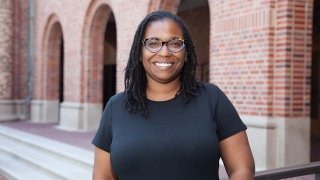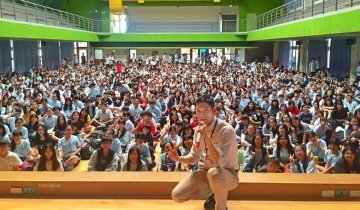Approximately 15 years have passed since posed for a picture with all of the graduate students in the Caltech Department of Planetary Sciences. But her memory of that seemingly innocuous event remains vivid, and is part of what drives her current work as associate director for research and policy in the USC Rossier-based Center for Urban Education (CUE).
“I was the only minority from a historically underrepresented group in that photo,” recalls Malcom-Piqueux. “I didn’t have anyone I could relate to, and I felt like a token.”
Malcom-Piqueux certainly deserved her spot in the prestigious program. The daughter of scientists, she had earned a bachelor’s degree in geological and planetary sciences at MIT before beginning the doctoral program at Caltech with the intention of getting her PhD and then pursuing a career in research and STEM (science, technology, engineering, and mathematics) education.
But she never felt like she belonged. “It was an isolating experience,” she says. “There were very few faculty of color across the institution, and none in my department, and it’s hard not to have role models from a similar background who have succeeded. It was also difficult to connect with my peers. There were challenges I faced and experiences I had as a black woman that they couldn’t relate to.” It didn’t help that Malcom-Piqueux was asked by campus police to show her ID when other students weren’t, or that she alone was questioned about what she was doing in the lab on a weekend.
A desire to better understand and address the experiences of other students of color in STEM fields led to Malcom-Piqueux decision to leave Caltech with her master’s degree and get her PhD in education. After reading about CUE, she knew USC Rossier was the ideal program for her. Malcom-Piqueux worked as a CUE research assistant from 2004 to 2008, the year she completed her doctorate. She remained involved with the center even after leaving USC for faculty positions at UC Riverside and George Washington University before returning to USC Rossier in 2015 as a research associate professor and CUE associate director.
While still at Caltech, Malcom-Piqueux had approached a faculty adviser about her feelings of isolation. “He told me science is science, that race didn’t have anything to do with it,” she says. “At the time I knew that was wrong, but didn’t know how to explain why it did matter.” After more than a decade of scholarship and practice on issues related to diversity and equity in STEM education, Malcom-Piqueux can articulate the challenges, and tackling them in her position at CUE is right where she wants to be.




